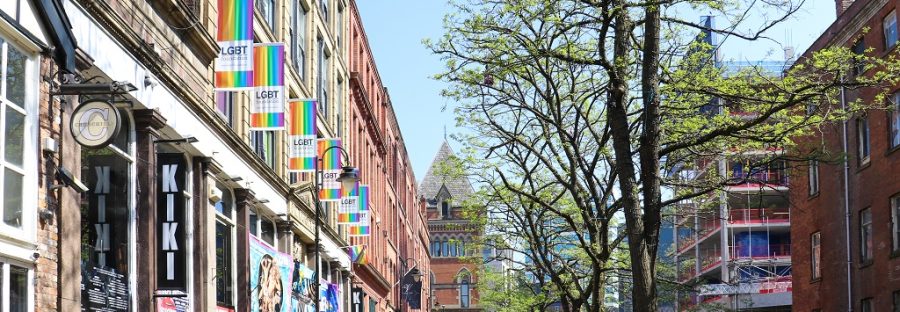LGBTQ+ students demand more university support for online learning during covid crisis
- Many students are isolating following a rise in coronavirus cases in Manchester
- LGBTQ+ students are asking for more mental health support from universities during social distanced learning
- Study says LGBT communities are being disproportionately affected by Covid-19
LGBTQ+ students say they are struggling with online learning and that social distancing restrictions are taking a toll on their mental health.
While social distanced learning is a challenge for all students, it is particularly affecting those identifying as LGBTQ+, with many of them unable to rely on support networks outside their homes.
Many young LGBTQ+ people feel more comfortable being “out” at university, especially those coming from a home environment that is unaccepting of their sexual and/or gender identity.

The LGBT Foundation released a study earlier this year uncovering the disproportionate impact of the covid-19 crisis on various LGBT communities.
Among the findings, the study highlights that “BAME LGBT communities face greater need for access to mental health services, disabled communities have had a higher rate of medical appointments cancelled, and trans and non-binary people are twice as likely to feel unsafe where they are staying”.
Tom, a second-year medicine student at the University of Manchester who identifies as bisexual, feels that his mood has been impacted by social-distanced learning.
He believes that the support provided by his university for LGBTQ+ students is good enough, although other students have told him that it can be difficult to have access to the counselling service.
Tom said: “Other than talking to LGBT+ friends remotely, I do not feel that I have stayed connected to the LGBT+ community.”
When the national lockdown was announced in March, Monisha was among thousands of students forced to finish their semester online.

This term, out of 11 hours of class per week at the University of Manchester, seven are online. Monisha feels that her mental health has worsened as a result of so much of her time spent learning virtually in her room.
She said: “I find myself feeling more anxious about leaving the house and going in for the little face-to-face teaching we do have as the people I am working with are practically strangers, as we have minimal interaction outside of university.”
Monisha claims LGBTQ+ students are not receiving enough support from the university. She thinks it would be helpful for universities to arrange freshers’ meetings over Zoom for students to meet new people while in isolation.
She added: “It may be beneficial for the university to introduce and advertise a form of LGBTQ+-specific counselling for students who are currently trapped in non-supportive environments, such as homophobic households.”
The University of Manchester was not available for comment.
The LGBT Foundation and The Proud Trust are offering various therapies and programmes for young LGBTQ+ people being impacted by the restrictions.


